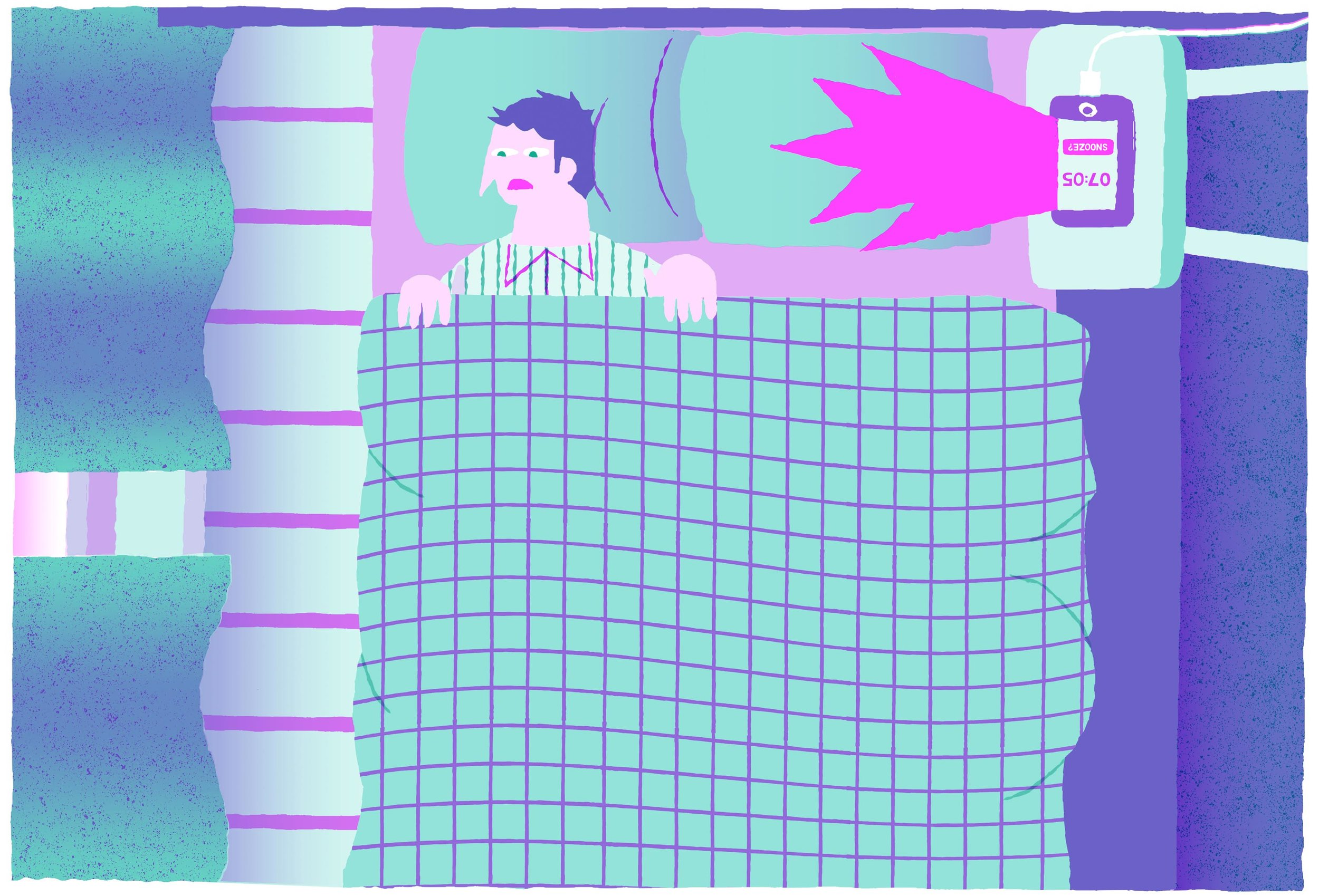Lights out
Can't get through the night without an update from Twitter, or checking the latest news? It might be time to swipe left on sleeping with your smartphone.
Words by Stephen Lepitak and illustration by Conor Nolan.
I cannot remember the last time I slept through a whole night without waking up to check my phone.
OK, I work in media which means I have a reason to check what’s going on at all hours. But the fear of missing out on people, and on life, as we have become a globally connected society able to communicate across the world in real-time, has created problems as well as innovations. One of those problems is the disruption of our sleep patterns.
Recently Ofcom, the organisation that regulates media across the UK, claimed that on average, one in five people spend 40 hours or more a week online. I’m surprised that statistic isn’t higher, but I expect that will escalate rather than recede. A great deal of that time is accounted for by smartphone usage - snapping, messaging, tweeting, browsing and watching. The same survey claims that those accessing the internet through their phones has increased by 20% over the last decade.
“When we looked at smartphone use around the time when participants reported they went to bed, more smartphone use around that time in particular was associated with a longer time to fall asleep and worse sleep quality during the night," explained Dr Gregory Marcus, associate professor of medicine at the University of California. In 2017, he published a study on the correlation between phone use and sleep patterns. The report concluded outright that screen time was associated with poor sleep and that in turn, poor sleep also resulted in an increase in screen time.
For several years now, Arianna Huffington, founder of the Huffington Post, has campaigned for people to take breaks from their phones. She wants people to switch off and find other methods of relaxation or entertainment.
She even released an app and left the publication to spend more time developing her own health business, named Thrive, following through on her belief in the need that more people need to consider their health and mental wellbeing.
“We must rediscover the value of sleep,” she said. “My bedroom is a device-free century. If I want to read I read a book – remember those?
“There is so much data to show that this works. Wellbeing is becoming something brands want to become more and more associated with,” she added.
Much of the impact of phones on sleep is put down to the ‘blue light effect’. The particular colours of light emanated by mobile screens, when picked up by the special cells behind your eyeballs, have the unintended effect of suppressing the melatonin hormone, which aids sleeping. In effect, your phone is telling your brain that it's still morning. Conversely, red light signals that it's time to go to sleep.
The best way to avoid this issue is simple; develop a phone-free routine at night about an half an hour before you go to bed and relax. Maybe the world will keep turning without you for a few hours.

